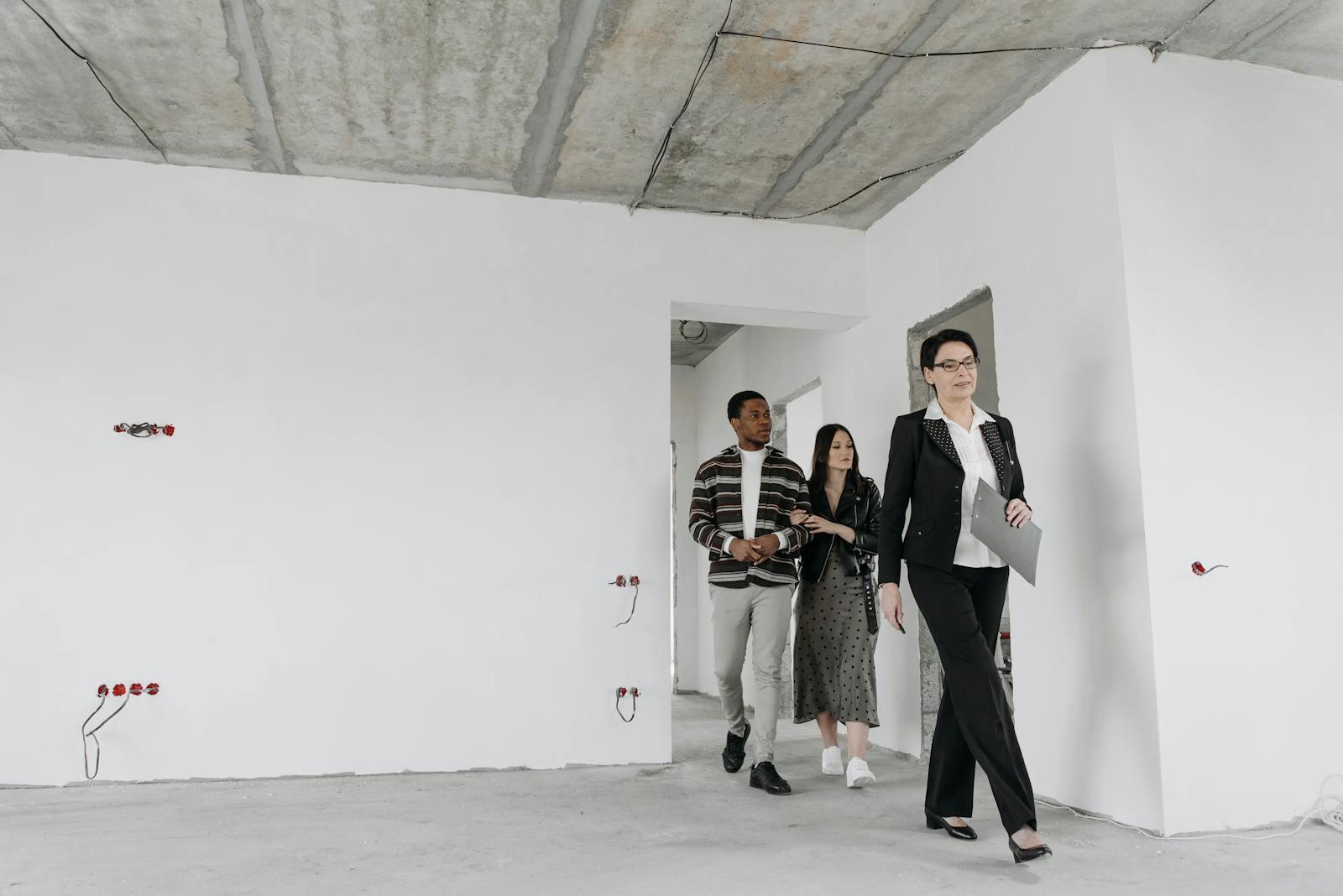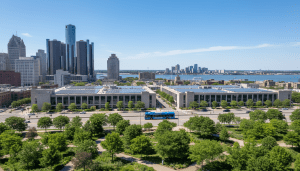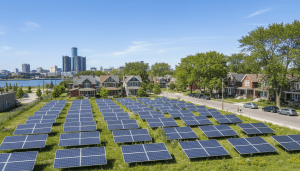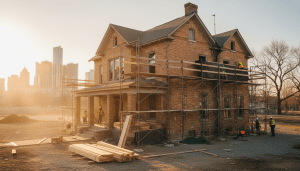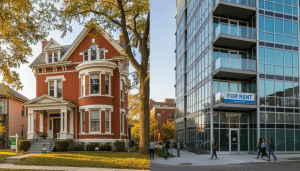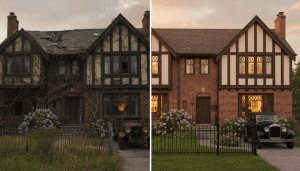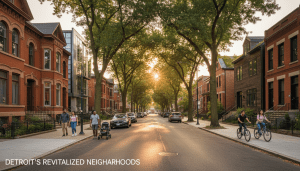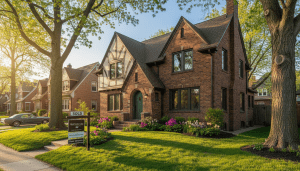Commercial real estate Detroit continues to prove that the city’s comeback is not just cultural but economic. In 2025, developers, investors, and business owners are seeing stronger demand across office, retail, and industrial properties. Detroit’s mix of affordability, growth, and infrastructure investment makes it one of the most profitable commercial markets in the Midwest.
This complete guide explores Detroit commercial real estate trends — from downtown skyscrapers to suburban warehouses — helping investors make smart decisions in a transforming city.
The State of Commercial Real Estate in Detroit 2025
| Sector | Avg. Lease Rate | Vacancy Rate | YoY Change | Market Outlook |
|---|---|---|---|---|
| Office | $23.50 / sq. ft. | 15.2% | -0.5% | Gradual recovery |
| Retail | $18.75 / sq. ft. | 8.7% | -0.3% | Growing demand |
| Industrial | $8.40 / sq. ft. | 3.9% | -0.2% | Record-low vacancy |
Detroit’s commercial property values remain 25–40% below national averages, offering investors high yields. The city’s redevelopment, backed by projects like the Hudson’s Detroit Tower and Michigan Central, is redefining the skyline and attracting new tenants.
Why Commercial Real Estate in Detroit Is Booming
1. Economic Diversity
Detroit is no longer just the Motor City — it’s a tech, logistics, and finance hub. The growing EV and AI industries fuel strong industrial and office leasing.
2. Strategic Location
Centrally positioned between Chicago, Toronto, and Cleveland, Detroit serves as a logistics bridge for North America’s supply chain.
3. Competitive Costs
Compared to Chicago or Columbus, Detroit offers commercial lease rates up to 35% lower, with higher cap rates.
4. Incentives and Redevelopment
Tax credits, Opportunity Zones, and brownfield programs continue to attract developers.
Office Market Outlook: Detroit’s Downtown Comeback
Commercial real estate Detroit — Office Sector 2025
After the remote work slump, Detroit’s office market is regaining traction. Businesses are returning to hybrid operations, prioritizing Class A buildings and flexible leases.
Key Trends:
Flight to quality: Tenants favor modern, energy-efficient buildings.
Downtown resilience: Bedrock’s Hudson’s Detroit Tower drives leasing momentum.
Suburban stability: Southfield, Troy, and Novi maintain strong healthcare and tech presence.
Average Rent (2025):
Downtown Class A: $26.50/sq. ft.
Suburban Class B: $20.10/sq. ft.
Hot Office Developments:
Michigan Central innovation campus
The Exchange building, Downtown Detroit
Monroe Blocks mixed-use project
Investor Note: Class A vacancies fell by 0.7%, signaling a steady rebound.
Retail Real Estate Detroit: Neighborhoods Power Growth
Commercial real estate Detroit — Retail Sector 2025
Neighborhood-based retail is redefining Detroit’s shopping scene. Local brands, boutique restaurants, and experiential shops outperform big-box chains.
Top Retail Corridors:
Downtown Detroit: Luxury retail + dining around Campus Martius.
Midtown: University-driven foot traffic and cultural attractions.
Corktown & West Village: Vibrant small business growth.
Average Rent: $18.75/sq. ft. (citywide average)
Retail conversions — such as retail-to-office and retail-to-residential — are up 15%, boosting mixed-use investment opportunities.
Local Case Study: Eastern Market’s retail warehouses are now Detroit’s culinary startup zone, merging wholesale distribution with public dining.
Industrial & Logistics Real Estate Detroit 2025 — The Strongest Performer
Commercial real estate Detroit — Industrial and Logistics Sector 2025
Detroit’s industrial segment leads Michigan in ROI and growth. Fueled by the EV supply chain, warehouse demand, and e-commerce logistics, the city’s industrial footprint continues expanding.
Key Insights:
Vacancy rate: 3.9%, near national lows.
Lease rates: $8.40/sq. ft., up 7% year-over-year.
EV and tech manufacturing fueling industrial parks along I-75 and I-94.
Major Industrial Zones:
| Corridor | Focus | Notable Projects |
|---|---|---|
| I-75 North | Logistics & transport | Amazon, UPS, GM distribution hubs |
| I-94 West | EV manufacturing | Ford’s BlueOval battery park |
| Airport Submarket | Air freight & warehousing | FedEx and DHL expansions |
Cap Rates: 7.5–9%, making this the most profitable commercial real estate in Detroit.
Mixed-Use and Redevelopment: The Future of Detroit CRE
Hybrid spaces are reshaping Detroit’s skyline — combining office, retail, and residential in one location. Developers are leveraging tax incentives to repurpose old factories and historic buildings.
Examples:
The Book Tower restoration — 500,000 sq. ft. of hospitality and retail.
The District Detroit — mixed-use sports, retail, and entertainment complex.
New Center redevelopment — blending office and residential.
These projects represent Detroit’s shift toward sustainable, community-based urban design.
Investment Opportunities for 2025–2026
| Property Type | Avg. Price/Sq. Ft. | Annual ROI | Investor Outlook |
|---|---|---|---|
| Office | $280 | 6.5–7% | Moderate recovery |
| Retail | $230 | 7–8% | Consistent demand |
| Industrial | $190 | 8–9% | Strongest growth |
Best Areas to Invest in 2025:
Corktown Innovation District — proximity to Ford’s Michigan Central.
Midtown — education and medical tenants.
Eastern Market — food and artisanal manufacturing.
Riverfront Redevelopment Zone — tourism and mixed-use potential.
Financing and Development Incentives
Detroit and Michigan offer robust commercial incentives:
DBRA Brownfield Incentives — tax credits for site cleanup.
MEDC Grants — for tech and industrial job creation.
Opportunity Zones — federal tax deferral and reduction programs.
Commercial Rehabilitation Abatement — property tax reduction for improvements.
Combine these with low acquisition costs and Detroit remains one of the most accessible U.S. markets for first-time commercial investors.
Detroit Commercial Real Estate Risks
Despite optimism, investors should plan for:
Higher interest rates (6–7%).
Construction costs up 12–15%.
City inspection backlogs delaying permits.
Neighborhood zoning complexities.
Partnering with local brokers and property managers helps navigate these issues effectively.
Frequently Asked Questions
1. Is commercial real estate Detroit profitable in 2025?
Yes. Industrial and mixed-use developments offer the highest ROI, while retail and office sectors show steady recovery.
2. What’s the best Detroit neighborhood for commercial investment?
Corktown, Midtown, and the I-75 corridor remain top picks due to tenant stability and infrastructure.
3. Are there incentives for new developers?
Yes. Programs from MEDC and DBRA provide grants, abatements, and tax credits for redevelopment.
4. What is Detroit’s commercial real estate outlook for 2026?
Moderate rent growth of 4–6%, with sustained industrial expansion driven by EV and logistics.
Commercial real estate Detroit in 2025 showcases a city that has reimagined its business ecosystem. Affordable space, new industries, and strong civic leadership continue to attract developers and investors nationwide.
From downtown high-rises to logistics corridors, the market offers opportunities for nearly every strategy — hybrid offices, adaptive reuse, industrial expansion, or retail reinvention.
With careful planning and local insight, Detroit’s commercial real estate sector isn’t just recovering — it’s thriving stronger than ever.
